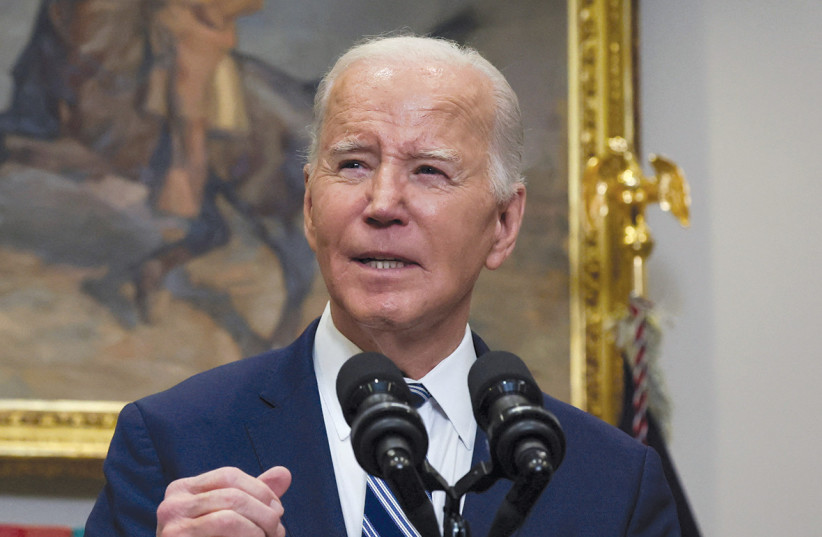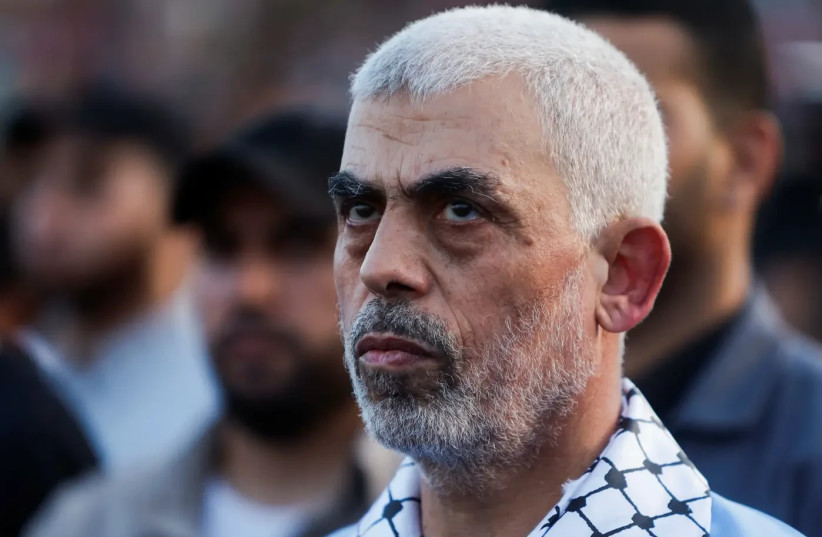Zvi Yehezkeli, head of the Arab desk at Channel 13 News, spoke recently with Erel Segal and Yair Oppenheimer on 103FM radio. Yehezkeli addressed the concern expressed by US President Joe Biden regarding military action in Rafah, alongside sharp criticism of Prime Minister Benjamin Netanyahu's conduct during the current Israel-Hamas war.
"This whole war is about patience," he claimed. "It may be that [Hamas leader in Gaza Yahya] Sinwar also thought that if Israel is now on the brink of [invading] Rafah and they offer him an interim deal saying 'You'll give up the ceasefire in Gaza,' the Israelis will waive their demand that all hostages be returned. You go after 40 living hostages, each brings a day of ceasefire, meaning you do Ramadan. The assumption was that it was good for everyone. I tend to believe that Sinwar looks at the map and says 'What do I need this for? If I've gotten this far and I'm not in danger, and humanitarian aid is flowing into the Gaza Strip, why should I go for a deal now? Let's drag it out.' The public opinion worldwide is gradually leaning towards Hamas."

The American influence in Gaza and the psyche of Hamas
He added further: "Look at what happened to the US position in recent months. Biden claimed 'I'll cut off their aid.' That's how Biden, in my opinion, revives Hamas. It's an oxygen tube for Hamas. A Gazan citizen who now receives American aid and food doesn't thank the Americans. Now, there are floating docks that are going to deliver two million portions of aid a day. I can send you a video right now of a blogger from Rafah telling what her mother prepares for lunch. There's food in Gaza. I think in populated areas, where there's population and all of Rafah, there's no shortage of food. There's a black market, there's domination, there are price increases. [But] there are no hungry people."
"For all the nationalist movements like the Popular Front for the Liberation of Palestine (PFLP) and even Fatah, the story is over," Yehezkeli clarified regarding what's happening in the Palestinian Authority. "I look at textbooks, I think as long as the Palestinian Authority educates that all of Palestine is theirs, I think right now they're divided. I just want to see what they're teaching. Recognize that they want parts of Israel from 1948. That's something that hasn't been erased for them. The story says there's a war here with a zero-sum. Even Marwan Barghouti, whom I met in prison, said that on the day there's a Palestinian state he won't be able to prevent Hamas from exercising the right of return. We can't take away from them the right to dream about their homes. They didn't waive the right of return."

Regarding his film about Nukhba terrorists, Yehezkeli recounted: "What was there was an industry of death that mainly negates our existence."
Editing by Michal Kadosh for 103FM radio.
